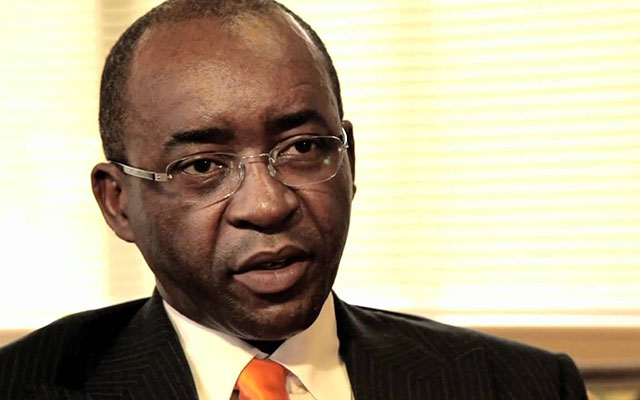How Vitaly Churkin helped Zim escape Chapter VII


Mr Churkin
Hildegarde The Arena
IT was late afternoon on Friday July 11, 2008 when the United Nations Security Council held its 5933rd meeting, at the UN headquarters in New York, United States of America. The meeting’s agenda was “Peace and Security in Africa”.
This do or die meeting soon after the June 27 runoff election, was a tipping point for Zimbabwe since Western nations — the US, Britain and France in particular — were gunning for Zimbabwe to be placed under Chapter VII of the United Nations Charter, which “sets out the UNSC’s powers to maintain peace, and allows the Council to ‘determine the existence of any threat to the peace, breach of the peace, or act of aggression’, and to take military and non-military action to ‘restore international peace and security’.
The 2011 rebellion in Libya made us realise the full import of the Chapter VII of the UN Charter. The chaos we now see in Libya since the death of Muammar Gaddafi could have been preceded by Zimbabwe in 2008 were it not for the double veto from Russia and China, which saw Britain and its allies fuming after the 1 hour, 40 minutes.
The UNSC meeting chaired by the Vietnamese Permanent Representative Mr Le Luong Minh was also attended by envoys from the following countries: Belgium, Burkina Faso, China, Costa Rica, Croatia, France, Indonesia, Italy, Libyan Arab Jamahiriya, Panama, Russian Federation, South Africa, United Kingdom of Great Britain and Northern Ireland, and the USA.
Zimbabwe’s Permanent Representative Mr Boniface Chidyausiku also attended the meeting since Zimbabwe was the main agenda item. China was represented by Mr Wang Guangya, while the late Mr Vitaly Churkin was Russia’s Permanent Representative.
This piece is in memory of Mr Churkin, who died on Monday, February 20, at his New York offices.
Together with his Chinese counterpart, they fought a good fight, and ensured that the dialogue between Zanu-PF and MDC-T being mediated by former President Thabo Mbeki yielded some fruit. They refused to be spoilers, a situation which would have plunged Zimbabwe and the sadc region into chaos and instability.
How unfortunate that Mr Churkin died on the eve of his birthday, for he would have turned 65 on Tuesday. The Russian top diplomat at the UN was born on February 21, 1952.
The writer revisited this day by looking at the record of speeches delivered by all in attendance, and how Security Council members voted. The snippets from the speeches are a reminder that no matter how we will try to flog history, it remains a part of us.
Ambassador Chidyausiku’s
presentation
“Let me begin by reiterating the fact that Zimbabwe, a country at peace with itself and its neighbours, poses absolutely no threat to international peace and security and should therefore not be a focus of this Council.
“In view of that, the situation in Zimbabwe does not warrant the adoption of a Security Council resolution under Chapter VII of the United Nations Charter. Zimbabwe has been a victim of incessant meddling through several measures, including declared and undeclared economic sanctions, merely because the Government embarked upon a process of equitable distribution of land after the former colonial power, under a Labour Party Government, reneged on its responsibilities stipulated in the Lancaster House Agreement of 1979.
“Unfortunately, because of the decision we took, the British and their allies have used their media to viciously portray Zimbabwe as a lawless, disorderly and undemocratic country. We have been haunted in all forums, including the Commonwealth, the Human Rights Council, the General Assembly’s Third Committee and now the Security Council. The root cause of the crisis, land ownership, is lost in the hype about so-called human rights violations, a subject far easier to sell for propaganda purposes . . .
“Adopting the draft resolution would set a dangerous precedent and only serve to undermine the ongoing dialogue between the political parties, risk worsening the political and socio-economic situation in the country and affect other countries in the region . . . “It is our fervent hope that members of the Council will not support the draft resolution, which seeks to involve the Security Council in a purely bilateral dispute between Zimbabwe and the United Kingdom.”
After the initial presentations the UNSC voted thus: Belgium, Burkina Faso, Costa Rica, Croatia, France, Italy, Panama, United Kingdom of Great Britain and Northern Ireland, United States of America (in favour) China, Libya, Russian Federation, South Africa, Vietnam (against).
Indonesia abstained, and Zimbabwe survived the UN Chapter VII Charter.
The British envoy was mad at the Deputy Secretary-General and Russia for vetoing the draft resolution arguing, “Deputy Secretary-General Migiro told the Security Council three days ago that the situation in Zimbabwe was a challenge to the world, and today the Security Council has failed to rise to that challenge.
“Ms Migiro said that this was a moment of truth for democracy in Africa. The Security Council has failed to shoulder its responsibility to do what it can to prevent a national tragedy deepening and spreading its effects across Southern Africa. I would like to be very clear about the draft resolution we have just voted on, a draft resolution sponsored by a range of countries, including African countries.
“It has been widely misrepresented by some members of the Council and by the representative of Zimbabwe . . .”
Ambassador Churkin gave a memorable argument on the issue when he argued:
“I wish first of all to respond to the irresponsible and factually inaccurate statement made by the Permanent Representative of the United Kingdom, who took it upon himself to interpret the
Russian position with reference to a decision of the Group of Eight (G-8). I would recall something that anyone who read that decision should know: not coincidentally, it makes no reference to the actions of the Security Council.
“The Russian Federation based its action on today’s draft resolution precisely on the position formulated by the G-8, and of which every member of that group should be perfectly aware. I should now like to set out the reasoning behind our vote on the draft text that was before us today. The result of the vote on that draft resolution, on sanctions against Zimbabwe, was largely predictable and was due to a number of circumstances.
“In the positions of a number of Council members, we have of late seen an increasingly obvious attempt to take the Council beyond its Charter prerogatives and beyond the maintenance of international peace and security. We believe such practices to be illegitimate and dangerous and apt to lead to a realignment of the entire United Nations system.
“The Russian Federation intends to continue to counter such trends, so that all States without exception will firmly comply with the Charter of the Organisation. We are firmly convinced that the problems of Zimbabwe cannot be resolved by artificially elevating them to the level of a threat to international peace and security.
“The Council’s application in this instance of enforcement measures under Chapter VII of the United Nations Charter is unjustified and excessive. Moreover, the draft resolution represents nothing but an attempt by the Council to interfere in the internal affairs of States, contrary to the Charter.
“The draft ignores important realities. The negotiating process in Zimbabwe has begun; dialogue has been launched between the representatives of the Government and the opposition and is proceeding apace. In that context, a broad range of problems in the inter-Zimbabwean settlement, including the formation of a Government of national unity, is under consideration. In that respect, we note the mediation efforts of President Mbeki of South Africa and President Santos of Angola, which are opening a window for realistic opportunities to overcome the internal conflict in Zimbabwe.
“The sponsors of the draft resolution have not considered the opinions of the States of the region, which reject its sanctions philosophy and are calling for the search for a political solution to be continued. Indeed, the draft ignores the consensual decision of the African Union appealing to States to refrain from any act that could have a negative impact on advancing the dialogue between the Zimbabwean parties. The adoption of a resolution could lead to a realignment of the regional situation and deepen existing problems. That is why the sponsors have been warned against such action by countries of the region that are involved in the search for a solution to the inter-Zimbabwean conflict.
“On the basis of all those factors, the Russian Federation voted against the draft resolution. In ignoring the voices of the sceptical and those who disagree with them, the sponsors unfortunately squandered a genuine opportunity to coordinate a Council response to events in Zimbabwe that would truly have promoted the success of the political dialogue in a country friendly to Russia and, subsequently, a way out of the current profound crisis . . .”
When the Chinese Permanent Representative weighed in, it was to give more punch to the double veto, and the talks continued, leading to Global Political Agreement and the Government of National Unity in 2009.
Note to the reader: The subject was widely covered by the international media. In view of that, the writer’s main source of information was www.securitycouncilreport.org (Security Council Sixty-third year 5933rd meeting; Friday, 11 July 2008, 4.10 pm – New York).









Comments